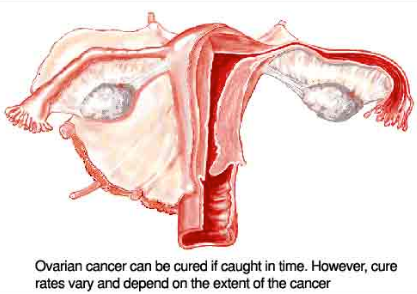Ovarian Tumor Removal in Bulgaria
Search and Compare the Best Clinics and Doctors at the Lowest Prices for Ovarian Tumor Removal in Bulgaria

Find the best clinics for Ovarian Tumor Removal in Bulgaria
No clinics available
Ukraine offers the best prices Worldwide
Price: $ 714

- Home
- Bulgaria
WHY US?
At Medijump, we're making medical easy. You can search, compare, discuss, and book your medical all in one place. We open the door to the best medical providers worldwide, saving you time and energy along the way, and it's all for FREE, no hidden fees, and no price markups guaranteed. So what are you waiting for?

Free

Best Price

Widest Selection

Risk-Free
What you need to know about Ovarian Tumor Removal in Bulgaria

Ovarian tumors are usually benign (non-cancerous), but if left untreated they may develop into Ovarian Cancer. If you have an ovarian tumor that grows and causes painful symptoms, you may need to undergo ovarian tumor removal, which is a surgical procedure to remove the tumor and sometimes the affected ovary or the surrounding tissue as well.
What does a Ovarian Tumor Removal Procedure Involve?
Ovarian tumor removal can be carried out with laparoscopy or laparotomy depending on the size of the tumor, both are done under general anesthetic. Your surgeon may only remove the tumor and leave the rest of the ovary intact or remove the entire ovary and fallopian tube. If the tumor is malignant (cancerous), your surgeon may remove part or all of the abnormal growth (ovarian tumor debulking).
How Long Should I Stay in Bulgaria for a Ovarian Tumor Removal Procedure?
You will need to stay in the hospital for 3 to 7 days after the surgery, but you should plan to stay in Bulgaria for 14 days. During your stay, you will attend follow-up hospital checkups where your surgeon monitors your condition and your surgeon will also remove the stitches.
What's the Recovery Time for Ovarian Tumor Removal Procedures in Bulgaria?
You may be able to go back to work within 4 weeks, but it is advisable to wait around 6 weeks to get back to your normal activities. During your recovery period, avoid intense exercises, heavy lifting, and sexual intercourse.
What sort of Aftercare is Required for Ovarian Tumor Removal Procedures in Bulgaria?
After the surgery, your surgeon will give you instructions regarding your diet, exercise, and wound care. You may need to meet your local doctor regularly so they can make sure your tumor and/or cancer has not come back. It is also advisable to see a therapist or counselor to talk to about emotional changes that ovarian tumor removal can cause.
What's the Success Rate of Ovarian Tumor Removal Procedures in Bulgaria?
Ovarian tumor removal has a high success rate of about 90%. However, just like any surgery, there are always side effects and risks that come with this type of surgery, including infection, bleeding and damage to nearby organs (such as the ureters and bladder). If both of your ovaries are removed, the side effect is menopause, infertility, dry vagina, hot flashes, night sweats, fatigue, and mood shifts.
Are there Alternatives to Ovarian Tumor Removal Procedures in Bulgaria?
In some cases, if your tumor is benign, you may need no treatment. Instead, your doctor may use “watchful waiting” to ensure the tumor does not cause any problems. If your tumor is malignant, your alternative is systemic therapies, such as hormone therapy, chemotherapy, and targeted therapy.
What Should You Expect Before and After the Procedure
Ovarian tumors can cause painful symptoms and cancerous. After ovarian tumor removal, you should not feel any of these symptoms anymore and you no longer will have a tumor in your ovary. Also, the chance of cancer spreading to other parts of your body is reduced and your fertility is usually preserved after treatment.
Whilst the information presented here has been accurately sourced and verified by a medical professional for its accuracy, it is still advised to consult with your doctor before pursuing a medical treatment at one of the listed medical providers
No Time?
Tell us what you're looking for and we'll reachout to the top clinics all at once
Enquire Now

Popular Procedures in Bulgaria
Prices Start From $260

Prices Start From $714

Prices Start From $714

Recommended Medical Centers in Bulgaria for procedures similar to Ovarian Tumor Removal

- Interpreter services
- Translation service
- Religious facilities
- Medical records transfer
- Medical travel insurance
- Health insurance coordination
- TV in the room
- Safe in the room
- Phone in the room
- Private rooms for patients available

- Interpreter services
- Translation service
- Religious facilities
- Medical records transfer
- Medical travel insurance
- Health insurance coordination
- TV in the room
- Safe in the room
- Phone in the room
- Private rooms for patients available

- Interpreter services
- Translation service
- Religious facilities
- Medical records transfer
- Medical travel insurance
- Health insurance coordination
- TV in the room
- Safe in the room
- Phone in the room
- Private rooms for patients available

- Interpreter services
- Translation service
- Religious facilities
- Medical records transfer
- Medical travel insurance
- Health insurance coordination
- TV in the room
- Safe in the room
- Phone in the room
- Private rooms for patients available

- Interpreter services
- Translation service
- Religious facilities
- Medical records transfer
- Medical travel insurance
- Health insurance coordination
- TV in the room
- Safe in the room
- Phone in the room
- Private rooms for patients available

- Interpreter services
- Translation service
- Religious facilities
- Medical records transfer
- Medical travel insurance
- Health insurance coordination
- TV in the room
- Safe in the room
- Phone in the room
- Private rooms for patients available

- Interpreter services
- Translation service
- Religious facilities
- Medical records transfer
- Medical travel insurance
- Health insurance coordination
- TV in the room
- Safe in the room
- Phone in the room
- Private rooms for patients available

- Interpreter services
- Translation service
- Religious facilities
- Medical records transfer
- Medical travel insurance
- Health insurance coordination
- TV in the room
- Safe in the room
- Phone in the room
- Private rooms for patients available

- Interpreter services
- Translation service
- Religious facilities
- Medical records transfer
- Medical travel insurance
- Health insurance coordination
- TV in the room
- Safe in the room
- Phone in the room
- Private rooms for patients available

- Interpreter services
- Translation service
- Religious facilities
- Medical records transfer
- Medical travel insurance
- Health insurance coordination
- TV in the room
- Safe in the room
- Phone in the room
- Private rooms for patients available
Ovarian Tumor Removal in and around Bulgaria
Introduction
Bulgaria has plenty to offer and tourists are going to be very impressed with the country’s mountainous landscapes, beautiful Black Sea beaches, fascinating history, friendly locals, lively nightlife, and affordability. Although the country’s holiday tourism is very much on the radar, it is also actually quite popular with medical tourists, due to its modern medical centers, highly trained medical professionals, state-of-the-art equipment, affordable healthcare, and mineral baths, thousands of medical tourists visit this country each year. Most of the medical tourists come for dental treatment, orthopedic surgery, elective surgery, neurosurgery, as well as health screening.
Popular Cities and Regions in Bulgaria
Bulgaria’s laid-back capital city, Sofia, is truly a must-visit. It is full of museums, Ottoman mosques, communist architecture, chic galleries, Eastern Orthodox churches, amazing restaurants, and upbeat clubs. One of the most popular landmarks in the country is the Aleksander Nevski Cathedral, which is an awe-inspiring church built between 1882 and 1912 to honor 200,000 Russian soldiers who died fighting for the independence of Bulgaria during the Russo-Turkish war. If you want to relax on beautiful beaches visit Varna, which is a major tourist destination during the summer. The second-largest, city in Bulgaria is Plovdiv and it is one of the oldest continuously inhabited cities in Europe. Tourists are attracted by the Roman Amphitheatre, Archeological Museum, and Tsar Simeon Central Garden.
Transport in Bulgaria
Most international tourists will arrive at Sofia Airport, which serves flights to most numerous major cities in Europe and the Middle East. There are several budget airlines that operate flights from this airport, including Ryanair and Wizz Air. Domestic flights are available, but they tend to be expensive. Therefore, to travel from one city to another, trains and buses are the best option. Buses and trains are punctual and affordable. However, if you are in a hurry, you should avoid trains as they can be a little slow. To travel around big cities, taxis are widely available and are really cheap. Just make sure you choose a licensed taxi to avoid being overcharged.
Visas in Bulgaria
While Bulgaria is not yet a part of the Schengen Area, it has a visa policy that is based on the Schengen system. Therefore, holders of Schengen Visa are allowed to enter the country. Additionally, citizens of 62 countries, including the US, Australia, and the UAE, can stay in the country for up to 90 days without a visa.
Weather in Bulgaria
From June to August, Bulgaria experiences summer. The weather can get a bit hot and humid, with an average temperature of 19°C to 21°C. July is the wettest month in the country. Winter, from December to February, is usually freezing. Autumn and Spring bring pleasant weather.
Additional Info
- Local Currency: The official currency is the Bulgarian Lev (BGN). 1 USD will get you approx. 1.8 BGN.
- Money & Payments: You can find ATMs in every city in the country. Credit cards are accepted in bigger restaurants and hotels. Tipping is sometimes expected.
- Local Language: Bulgarian is the official language in Bulgaria. Turkish and Roma are spoken by a minority of people. English is becoming more and more common in the country, but it is not widely spoken.
- Local Culture and Religion: Christianity dominates the population of Bulgaria, followed by Islam and Judaism.
- Public holidays: Bulgaria celebrates several historical and religious holidays, such as Orthodox Good Friday, Orthodox Easter Day, Independence Day, Culture and Literacy Day, Christmas Day, and Liberation Day.
Popular Searches
- Plastic Surgery in Thailand
- Dental Implants in Thailand
- Hair Transplant in Thailand
- Breast Augmentation Thailand
- Gastric Sleeve in Thailand
- Gender Reassignment Surgery in Thailand
- Laser Hair Removal in Bangkok
- Botox in Bangkok
- Dermatology in Bangkok
- Breast Augmentation in Bangkok
- Coolsculpting in Bangkok
- Veneers in Turkey
- Hair Transplant in Turkey
- Rhinoplasty in Turkey
- Stem Cell Therapy in Mexico
- Rhinoplasty in Mexico
- Liposuction in Mexico
- Coolsculpting in Tijuana
- Rhinoplasty in Korea
- Scar Removal in Korea
- Gastric Sleeve in Turkey
- Bone Marrow Transplant in India
- Invisalign in Malaysia
- Plastic Surgery in the Dominican Republic
- Tummy Tuck in the Dominican Republic
- Plastic and Cosmetic Surgery in Poland
- Rhinoplasty in Poland
- Hair Implant in Poland
- Dental Implants in Poland
- IVF in Turkey